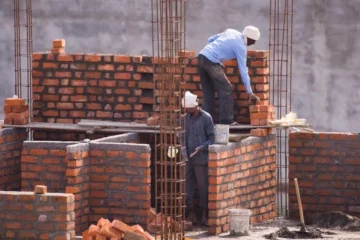
In a time when social media informs and influences us on everything — from fashion to food, politics and furniture, choosing a home via Instagram no longer seems far-fetched. And real-estate developers have sensed this. Many are tying up with beauty bloggers and lifestyle influencers to promote new projects, site visits and sample flats, all in the hopes of capturing the attention of a new demographic that is particularly hesitant about this kind of large investment.

“Real-estate has traditionally been heavily influenced by word of mouth and referrals and that continues to be an important driving factor for sales,” says Mayur Shah, managing director at the developers, Marathon Group. “Influencer marketing strikes a balance between word-of-mouth referrals and traditional advertising by bringing a certain degree of authenticity and resonance to the message.”
New marketing tool
Ekta World, for instance, puts out about six tailored posts via influencers every month, using up to four different influencers at a time. “Through this method, our brand recall has improved,” says chairman Ashok Mohanani. “Their approach is selling a lifestyle, which real-estate just happens to be a part of, and in times when people are basically living on the internet, influencer marketing guarantees a seamless passing of information.”
The idea is to cover different aspects of a project and location, using different influencers. For example, the Marathon Group has started reaching out to food influencers to highlight the social infrastructure in certain areas. “That will drive organic traffic from people in the locality, who can then be retargeted at a later point,” says Shah. “We’re also planning campaigns with influencers to highlight human-interest stories about our customers and our construction labourers too. We’re planning campaigns with popular city web pages as well. We are still experimenting, but the plan is to evolve strategies that will be hyper-relevant to our customers and our brand.”
Neha Somvanshi, 29, an influencer from Bengaluru, says her domains are real-estate, travel and lifestyle. For the last six months, she’s been posting about properties for real-estate developers, Karle Infra. With nearly 23,000 followers on Instagram, she can get word out about a new project without it looking like hard-sell, and lately, she’s been approached by homestay brands, co-living brands and other developers too, she adds.
Micro-influencer Aditi Negi, 20, meanwhile, has begun to focus on real-estate as a specialty. She charges about Rs 600 per Instagram story. “The effort is much more than just unpacking a lipstick and trying it on,” she says. “I visit the property, write about the amenities, create multiple stories around each project, shoot walkthroughs and post them over a month.”

At the Ashwin Sheth Group and Karle Infra, executives say they are collaborating with influencers, and finding that sometimes traffic is redirected to their websites — where they can then appeal to a potential buyer with 360-degree tours, online offers, etc. Karle recently launched a project in Bangalore using 14 influencers across categories like interiors, lifestyle and mommy blogs. “The audience wants differentiation, and attention spans are much lower. This mix ensures increased visibility and reach,” says Eshanya Karle, director at Karle.
[“source=hindustantimes”]



